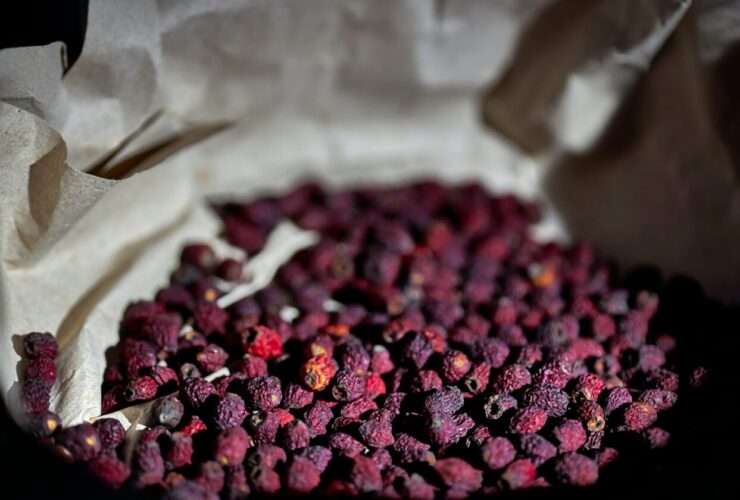Introduction
The dragon fruit, also called pitaya, has captured the attention of many health enthusiasts with its vivid colors and unusual look. This exotic fruit originates from the cactus family and is available in various types, each with a unique flavor and nutritional makeup. Dragon fruit is a visual feast for the senses, with the red variety’s vibrant magenta skin and the white variety’s yellow and green tones. But beyond its attractive appearance is a wealth of nutrients and health advantages that have caught the attention of people looking for a balanced diet.
The ketogenic diet has become a well-liked option in the world of eating trends for those who want to reduce weight, improve their metabolic health, and sharpen their minds. The keto diet, based on eating a lot of fat and little carbs, attempts to put the body into a state of ketosis when it burns fat instead of glucose as its main fuel. The keto diet’s supporters assert that it can provide quick weight loss and other health advantages by significantly lowering carbohydrate intake and raising fat consumption. But following the ketogenic diet means paying close attention to what you eat, maximizing your intake of fat and protein, and minimizing your intake of carbohydrates.
The growing popularity of dragon fruit has many people on the ketogenic diet questioning if it fits in with this low-carb way of living. Although dragon fruit is highly praised for its variety of vitamins, minerals, and antioxidants, keto fans are concerned about its high carbohydrate level.
Dragon fruit is on the higher end of the carb spectrum, with about 10 grams of net carbs per 100 grams of food, so there are better options for people trying to adhere to the keto diet’s stringent carb limits. Although dragon fruit has many nutritional advantages, those trying to enter and stay in ketosis may find it difficult to consume so many carbohydrates. Dragon fruit may still be allowed in a well-rounded keto diet plan if you prepare ahead and eat in moderation.
Understanding Dragon Fruit

Pitaya, or dragon fruit, is native to Central and South America, growing well in tropical and subtropical climates. The fruit, a member of the cactus family, is distinguished by its colorful and spiky skin. Although the red-skinned and white-skinned dragon fruit kinds are the most widely available, there are other lesser-known varieties, each with a distinct flavor and texture. The diversity of this exotic fruit is further enhanced by varieties such as the yellow dragon fruit, also called yellow pitaya or Hylocereus megalanthus, which has a little sweeter flavor than its contemporaries.
Renowned for being a nutritional powerhouse, dragon fruit is brimming with vital vitamins, minerals, and antioxidants. The health advantages of dragon fruit are numerous and include rich amounts of vitamin C, B vitamins, iron, and magnesium. Furthermore, the body’s oxidative stress and inflammation are lessened by its high antioxidant content, which includes flavonoids and betalains. Because of these antioxidants, dragon fruit is a great complement to a balanced diet, helping to promote general health and lower the risk of chronic diseases.
Explaining the flavor and consistency of dragon fruit is like solving a sensory riddle. Some describe its flavor as a cross between a kiwi and a pear, with a tinge of tanginess and delicate, sweet undertones. Small, edible black seeds are scattered throughout the flesh, giving it a feel that is frequently compared to a kiwi. But depending on the variety, there can be a minor variation in the texture and taste, with some having a sweeter flavor profile than others. Dragon fruit is a delightfully cool and somewhat sweet treat that can be consumed or added to various dishes.
Although dragon fruit has many health advantages, it’s vital to remember that because of its comparatively high carbohydrate content, it’s not usually considered keto-friendly. Dragon fruit’s high vitamin C level (which helps shield skin from oxidative damage) and high fiber content (which facilitates digestion and supports gut health) may make it incompatible with the ketogenic diet. To maintain ketosis and meet their nutritional objectives, people on a rigorous ketogenic diet may need to exercise in moderation or abstain from dragon fruit completely.
Is Dragon Fruit Keto?

A. Answer In Short
In short, dragon fruit is not typically considered keto-friendly due to its relatively high carbohydrate content.
B. Carb Content: The Primary Determinant
When determining whether a food suits the ketogenic diet, the primary consideration is its carbohydrate content. Dragon fruit contains approximately 10 grams of net carbs per 100-gram serving, which exceeds the recommended daily limit of 20-30 grams for individuals aiming to stay in ketosis.
C. Fats and Protein Content
While fats and proteins are also essential macronutrients in the keto diet, the emphasis is primarily on minimizing carbohydrate intake to induce and maintain a state of ketosis. Dragon fruit is low in fats and moderate in protein, which does not align with the typical macronutrient ratio recommended for ketogenic nutrition.
D. Breaking Down Net Carbs vs. Total Carbs
Understanding the difference between net carbs and total carbs is crucial for evaluating the keto-friendliness of foods. Net carbs refer to the total carbohydrates minus fiber and certain sugar alcohols, representing the carbs that impact blood sugar levels. Dragon fruit’s net carb content is relatively high, contributing to its unsuitability for the keto diet.
E. The 20-30g Net Carb Threshold
The keto diet typically restricts net carb intake to 20-30 grams daily to maintain ketosis. Since dragon fruit contains:
- Around 10 grams of net carbs per 100-gram serving.
- Consuming even a small portion can quickly approach or exceed this threshold.
- They are potentially hindering ketosis and fat adaptation.
In evaluating dragon fruit’s macronutrient profile against keto requirements, it becomes apparent that its high carbohydrate content outweighs its minimal fat and protein content. While dragon fruit offers various health benefits and nutrients, individuals following a strict ketogenic diet may need to limit or avoid its consumption to maintain their desired metabolic state.
Exploring Alternatives: Keto-Friendly Fruit Options

A. Berries
Berries are renowned for their low carbohydrate content, making them excellent choices for those following a ketogenic diet. Blackberries, raspberries, and strawberries are particularly keto-friendly options, with net carb counts ranging from 2 to 6 grams per 100-gram serving. Additionally, berries are rich in fiber and antioxidants, promoting digestive health and reducing inflammation. Incorporating berries into your keto meal plan can satisfy your sweet cravings while keeping you within your daily carb limit.
B. Avocado
While technically a fruit, avocados are one of the most keto-friendly options. With minimal net carbs and high healthy fat content, avocados perfectly align with ketogenic macronutrient ratios. They provide essential nutrients such as potassium, magnesium, and vitamins C, E, and K. Avocados are incredibly versatile. They can be enjoyed in various forms, including slices, guacamole, or blended into smoothies. Their creamy texture and satisfying taste make them a staple in many keto meal plans.
C. Comparing Nutritional Profiles: Dragon Fruit vs. Berries vs. Avocado
When comparing the nutritional profiles of dragon fruit, berries, and avocado, notable differences emerge. While dragon fruit contains higher net carbs, berries offer a lower-carb alternative packed with vitamins and antioxidants. On the other hand, avocados boast an even lower net carb content while providing an abundance of healthy fats and essential nutrients. Understanding these distinctions allows individuals on a ketogenic diet to make informed choices that align with their dietary goals and preferences.
Practical Tips for Keto Enthusiasts

Because of its comparatively high carbohydrate content, dragon fruit might not be the most keto-friendly fruit, but conscientious keto fans can still enjoy it in moderation. One tactic is to add a tiny amount of dragon fruit to meals or snacks that are high in healthy fats and low in carbohydrates. Dragon fruit slices can help balance the macronutrient profile while providing a splash of color and flavor. For instance, they can be blended into a keto-friendly smoothie with avocado and coconut milk or paired with a full-fat Greek yogurt. To further guarantee that dragon fruit fits into your ketogenic lifestyle without impairing ketosis, think about when to consume it within your daily carb allocation.
Berries and avocados are two flexible fruit substitutes that work well in a wide range of inventive dishes for people looking for keto-friendly fruit options. Berries may be used to naturally sweeten and color-bomb keto-friendly sweets like mixed berry fat bombs, low-carb cheesecake, and chia seed pudding. Avocados can also be a creamy base for savory recipes such as avocado bacon egg cups, stuffed avocado boats, and avocado pesto zoodles. While adhering to your dietary objectives, you may maintain the excitement and satisfaction of your meals by trying out creative recipes that incorporate these keto-friendly fruits.
When searching the produce section for keto-friendly selections, preferring fruits high in fiber and minerals and low in net carbohydrates is critical. Choosing berries like raspberries, blackberries, and strawberries enables you to indulge in fruit sweetness without exceeding your daily carbohydrate allowance. Similarly, picking ripe avocados may add a rich flavor and creamy texture to various keto meals and snacks. To ensure dragon fruit fits your diet, watch out for portion sizes when buying it, and think about using it sparingly in your keto meal plan. A wider variety of fresh, in-season vegetables that suit your keto diet may also be found by visiting your neighborhood farmers’ markets or specialized shops.
FAQ about Dragon Fruit and Keto
Q: Can I eat dragon fruit in keto?
A: While dragon fruit can be consumed in moderation on a keto diet, it’s essential to be mindful of its relatively high carb content. Opting for small servings and balancing them with other low-carb, high-fat foods can help incorporate dragon fruit into a keto meal plan.
Q: Is dragon fruit high in carbs?
A: Yes, dragon fruit is relatively high in carbs compared to other fruits. It contains about 10 grams of net carbs per 100 grams, making it important to limit consumption on a keto diet where carb intake is typically restricted to maintain ketosis.
Q: What is the most keto-friendly fruit?
A: Blackberries, raspberries, and strawberries are among the most keto-friendly fruits due to their low net carb and high fiber content. They can be enjoyed in moderation on a ketogenic diet without significantly impacting ketosis.
Q: How many net carbs are in red dragon fruit?
A: Red dragon fruit typically contains around 10 grams of net carbs per 100-gram serving. It’s essential to consider portion sizes and incorporate them sparingly into a keto meal plan to stay within your daily carb limit.
Q: What fruits to avoid on keto?
A: Fruits high in sugar and carbs, such as bananas, grapes, and mangoes, are best avoided on a keto diet. These fruits can quickly increase your carb intake and may hinder your ability to reach or maintain ketosis.
Q: Is dragon fruit full of sugar?
A: While dragon fruit does contain natural sugars, it’s not as high in sugar as some other fruits. However, its carb content and sugars should be considered when incorporated into a keto diet.
Q: Can I lose weight eating dragon fruit?
A: While dragon fruit can be part of a balanced diet, adding it to your meals won’t guarantee weight loss. Weight loss results depend on various factors, including overall calorie intake, macronutrient balance, and physical activity levels.
Q: Is Mango good for keto?
A: Mangoes are relatively high in carbs and sugars, making them less suitable for a keto diet. While they can be enjoyed occasionally in small portions, they should be consumed sparingly to avoid exceeding your daily carb limit.
Q: How many calories is one dragon fruit?
A: One dragon fruit typically contains around 60-70 calories, depending on its size and variety. It’s a relatively low-calorie fruit, but its carb content should be considered when considering it on a keto diet.
Q: Can I eat dragon fruit every day?
A: While you can technically eat dragon fruit daily, it’s essential to consider your overall dietary goals and nutritional needs. Moderation is key, especially on a keto diet, where carb intake is limited to maintain ketosis.
Q: Is Kiwi a keto?
A: Kiwi is relatively high in carbs compared to keto-friendly fruits like berries. While it can be included in small portions occasionally, monitoring your carb intake and considering its impact on your ketosis goals is essential.
Q: Does dragon fruit spike insulin?
A: Like most fruits, dragon fruit contains natural sugars that can cause an increase in insulin levels when consumed. However, the extent it spikes insulin varies depending on factors such as portion size and individual metabolic response.
Q: Are bananas keto-friendly?
A: Bananas are not considered keto-friendly due to their high carb content. They contain significant amounts of sugar and starch, which can quickly increase carb count and potentially disrupt ketosis.
Q: Is dragon fruit weight loss or gain?
A: Dragon fruit can be part of a balanced diet for weight management, but its consumption alone won’t directly lead to weight loss or gain. Achieving weight loss or maintenance goals requires overall calorie control and a balanced diet rich in nutrient-dense foods.
Conclusion
We’ve discovered crucial information in our investigation on the relationship between dragon fruit and the ketogenic diet to assist program followers in making wise food decisions. It’s important to realize that dragon fruit has a high net carbohydrate content—roughly 10 grams per 100 grams of meal. Even if it might not strictly adhere to the keto diet’s carb restrictions, occasional enjoyment is still permissible with moderation and careful consideration of total macronutrient consumption.
The main solution to the crucial query, “Is Dragon Fruit Keto-Friendly?” is found in the careful balancing act of a keto diet’s main principle—limiting net carbohydrate consumption. It is best for people who are carefully following a ketogenic diet to consume as little dragon fruit as possible. However, adding tiny servings occasionally can make sense for people following a more adaptable or cyclical ketogenic diet. As usual, seeking advice from a nutritionist or medical expert can provide tailored recommendations based on specific health objectives.
As we wrap off our conversation, it’s critical to acknowledge the variety and flexibility of the ketogenic diet. A range of keto-friendly fruit options, such as berries and avocado, although some fruits, like dragon fruit, may need to be consumed in moderation. Accepting this variation makes the road toward a healthier diet more pleasurable and sustainable. Keto fans are urged to experiment and customize their strategy to discover the ideal balance that supports their dietary objectives and improves their general health. Recall that leading a meaningful and satisfying life requires having a careful and educated relationship with food. This is where the success of the keto diet resides.
Reference
(1) Diet Review: Ketogenic Diet for Weight Loss
https://www.hsph.harvard.edu/nutritionsource/healthy-weight/diet-reviews/ketogenic-diet/
(2) Dragon Fruit: Nutrition, Benefits, and How to Eat It – Healthline
https://www.healthline.com/nutrition/dragon-fruit
(3) Star Fruit: Benefits, Risks, and How to Eat It – Healthline
https://www.healthline.com/nutrition/star-fruit-101
(4) Kiwi Benefits: Heart Health, Digestion, and More – Healthline
https://www.healthline.com/nutrition/kiwi-benefits
(5) Dragon Fruit Health Benefits & Nutrition – WebMD
https://www.webmd.com/food-recipes/benefits-dragon-fruit
(6) 13 Health Benefits Of Dragon Fruit And How To Eat It
https://www.stylecraze.com/articles/amazing-benefits-of-dragon-fruit/
(7) 7 Health Benefits of Dragon Fruit (Plus How to Eat It) – Healthline
https://www.healthline.com/nutrition/dragon-fruit-benefits
(8) Low-Carb Fruits and Berries – the Best and the Worst
https://www.dietdoctor.com/low-carb/fruits
(9) Dragon fruit benefits backed by science – Medical News Today
https://www.medicalnewstoday.com/articles/324655
Was this helpful?

Joseph Emb, RDN
Founder of StyleVitally.com | Registered Dietitian & Wellness Advocate
What I Cover:
I’m passionate about connecting nutrition science and everyday wellness to help people live healthier, more vibrant lives. I write about evidence-based nutrition, mindful eating, sustainable lifestyles, and holistic well-being at StyleVitally.com.
My Background:
The University of Texas in Austin, where I earned my Dietetics diploma, laid the groundwork for my nutrition and health career. My training and hands-on experience taught me the science and art of using nutrition to enhance health and well-being.
Professional Journey:
I’m an RDN with lots of experience. I’ve helped people seeking tailored nutritional recommendations in clinical settings and community outreach programs. My constant learning and professional development ensure that my recommendations are always based on the latest evidence.
Ethical Commitment:
My practice prioritizes integrity. My content is transparent and objective, following the most significant ethical standards. I can give my audience unbiased advice because I’m not affiliated with food businesses or industry associations. I want to help people make informed health decisions that match their values and ambitions.
Join Me on the Wellness Journey:
Join me on the path to vitality and well-being, whether facing nutritional issues, seeking sustainable lifestyle changes, or simply wanting a better, happier you. We’ll discover how diet, mindfulness, and holistic well-being can maximize your potential.









